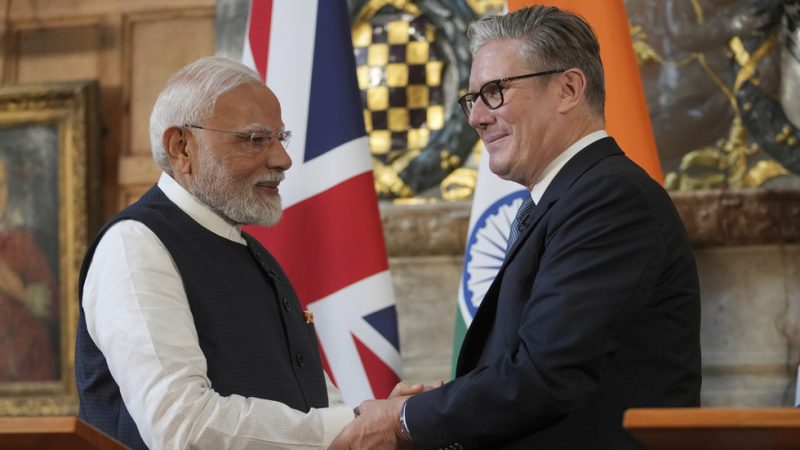
India and the UK have inked a landmark multibillion-dollar free trade agreement (FTA), hailed by both nations as a significant step forward in their economic relationship. The deal, signed in London on July 24th, 2025, by Prime Ministers Narendra Modi and Keir Starmer, promises to significantly boost bilateral trade and unlock substantial opportunities for both countries.
Prime Minister Modi described the agreement as a “milestone moment,” while Prime Minister Starmer called it the “biggest and most economically significant” trade deal the UK has signed since Brexit. The FTA aims to significantly increase bilateral trade from its 2024 level of $57.7 billion to a target of $120 billion by 2030.
For India, the agreement secures duty-free access for approximately 99% of its exports to Britain, opening up nearly $23 billion in opportunities, particularly for labor-intensive sectors like textiles, footwear, gems and jewelry, seafood, and engineering goods. Indian Commerce Minister Piyush Goyal emphasized the deal’s potential for inclusive and gender-equitable growth.
The UK also stands to gain considerably. The agreement will lower India’s average tariff on UK imports from 15% to 3%, making British products such as gin, whisky, electrical goods, medical devices, cosmetics, chocolates, and luxury cars more competitive in the Indian market.
Beyond goods, the FTA extends benefits to the services sector. Indian professionals in IT, ITeS, finance, and other fields will see advantages, including exemptions from UK social security contributions for temporary assignments of up to three years. This provision is expected to boost the flow of skilled workers between the two nations.
While the Indian cabinet has approved the FTA, it still requires approval from the British Parliament. The agreement is anticipated to take effect within a year, according to the BBC. The long-term impact of this ambitious trade deal remains to be seen, but its immediate effect is a significant boost to the economic ties between India and the UK, signaling a new era of closer collaboration.









